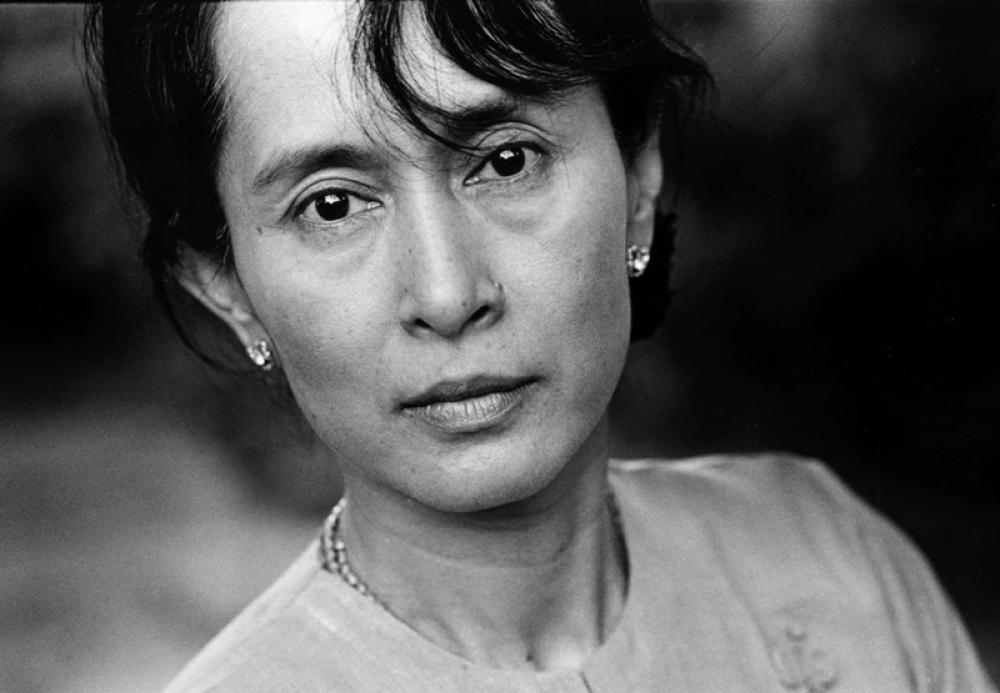Just Earth News | @justearthnews | 06 Sep 2017, 07:46 am Print

According to local news, Suu Kyi has also blasted the 'iceberg of misinformation' which has been spread on the internet.
A government statement said that the Nobel Laureate told Turkey's President, Recep Tayyip Erdoğan, that her government has already started defending all the people in Rakhine in the best way possible".
It is estimated that more than 123,000 Rohingya people have fled Myanmar in the wake of the crisis.
.jpg)
Myanmar, which has been accused of ethnic cleansing, has also witnessed an exodus, mostly from the northern Rakhine state.
People have fled into Bangladesh, a country which shares its border with Myanmar.
Meanwhile, Reuters news agency quoted Bangladeshi sources as saying that the Burmese government has been laying 'landmines across a section of its border with Bangladesh for the past three days'.
This, they said is done to 'prevent the return of Rohingya Muslims fleeing violence'.
"They are putting the landmines in their territory along the barbed-wire fence," the agency quoted a source as saying.
"Our forces have also seen three to four groups working near the barbed wire fence, putting something into the ground,” one of the sources said. “We then confirmed with our informers that they were laying land mines.”
Suu Kyi however put all these allegations as "simply the tip of a huge iceberg of misinformation calculated to create a lot of problems between different communities and with the aim of promoting the interest of the terrorists".
She was quoted in the statement as saying, "We know very well, more than most, what it means to be deprived of human rights and democratic protection."
"So we make sure that all the people in our country are entitled to protection of their rights as well as, the right to, and not just political but social and humanitarian defence," the Nobel Laureate added.
As the Rohingya crisis slowly makes its way towards the front page/section of global news outlets, more number of people have raised their voice against the issue.
Some have also urged the Nobel committee to strip Suu Kyi of her recognition.
In his opinion piece for The Guardian, British author and political commentator George Monbiot wrote: "Few of us expect much from political leaders: to do otherwise is to invite despair. But to Aung San Suu Kyi we entrusted our hopes. To mention her name was to invoke patience and resilience in the face of suffering, courage and determination in the unyielding struggle for freedom. She was an inspiration to us all."
"By any standards, the treatment of the Rohingya people, a Muslim minority in Myanmar, is repugnant. By the standards Aung San Suu Kyi came to symbolise, it is grotesque. They have been described by the UN as “the world’s most persecuted minority”, a status that has not changed since she took office," he added.
Criticising Suu Kyi for her lackadaisical attitude and questioning her ability to handle the situation, the columnist wrote: "So far Aung San Suu Kyi has been insulated by the apologetics of those who refuse to believe she could so radically abandon the principles to which she once appealed. A list of excuses is proffered: that she didn’t want to jeopardise her prospects of election; that she doesn’t want to offer the armed forces a pretext to tighten their grip on power; that she has to keep China happy."
Monbiot is one among the thousands who is more than happy to sign a petition 'for the revocation of her Nobel peace prize'.
Earlier this week, fellow Nobel Recipient Malala Yousafzai too took to social media to address the Rohingya crisis, in which she subtly attacked Suu Kyi.
Suu Kyi Image: Wallpaper
Rohingya Image: Image: UNHCR/Saiful Huq Omi
- Pakistan: Police recover two bullet-ridden bodies from Balochistan
- IDF strikes Hezbollah targets in Lebanon after projectile fire toward Northern Israel; 31 killed
- Pakistan: Armed gunmen kidnap 14 workers during coordinated raids in Balochistan
- ISIS-inspired plot foiled in UK: Two men get life sentences for targeting Jewish community
- India rejects allegations, urges Pakistan to tackle its ‘home-grown ills’





-1763561110.jpg)
